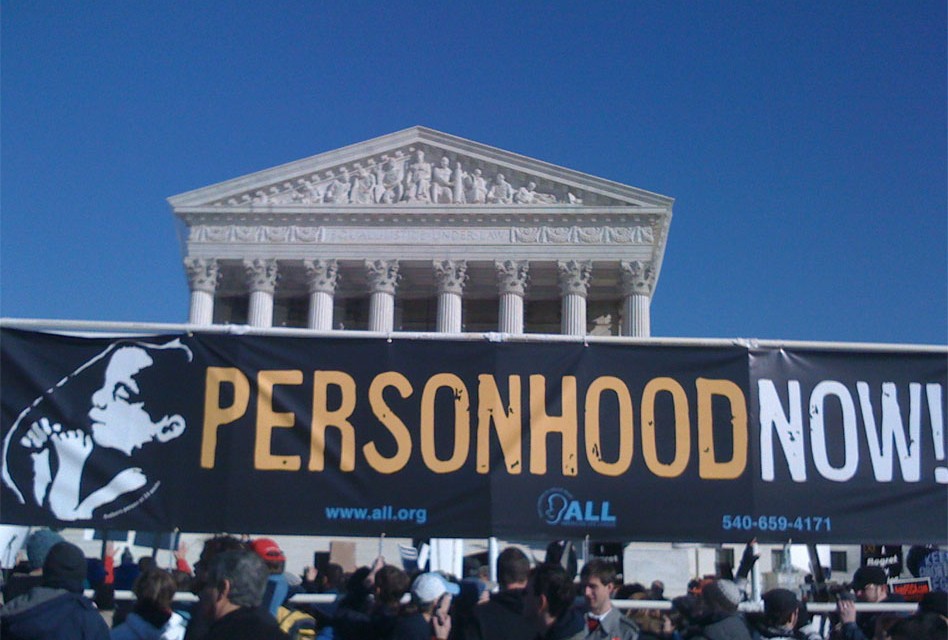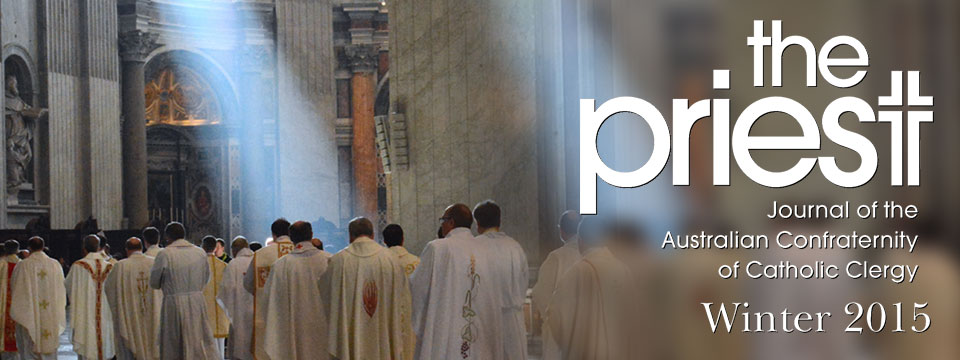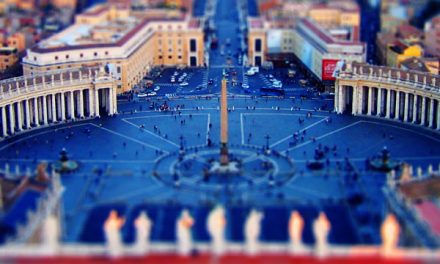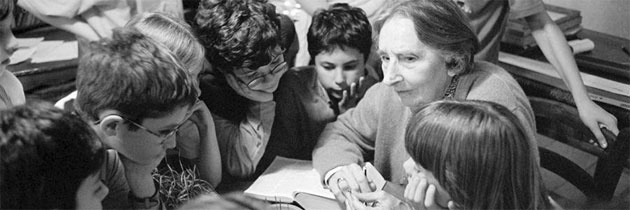Many lay people active in campaigns to limit or ban abortions, complain they are met with resistance by their parish priests in attempts to publicise or gain support for such projects as walks for life, prayer vigils to end abortion, campaigns to pressure politicians and governments to curtail or revoke liberal abortion laws, leafleting and suchlike.
This is not an attempt by a layperson to give either explanations or ‘solutions,’ but to offer a few thoughts and ask some questions which may foster mutual compassion, support and understanding between pro-lifers and their parish priests.
Print Friendly Format
Download and view this article as it appeared in the Winter 2015 issue of The Priest.
Firstly, some questions
- Is pro-life activism proper to the ministry of the priest?
- What are a priest’s obligations or opportunities to preach the gospel of life?
- What is the most pressing need regarding contraception and abortion among Catholics in the parish?
Regarding the radical example of the pro-life priest activist, certain unease is experienced when contemplating the Icarus-like fate of several ‘celebrity pro-life’ priests at home and abroad. Is it wise and prudent for an activist pro-life priest to publicly clash with his bishop because of his work primarily as a pro-lifer? This situation can be regarded by lay pro-lifers as heroism on the priest’s part, but does it in truth injure sacerdotal unity and undermine obedience to the Ordinary? No one but God can judge the minutiae of the dynamics involved in such a conflict, let alone the motivations of all concerned, but these clashes and the ‘crash and burn’ pattern of famous pro-life priests creates scandal. Would the Curé of Ars have become a kind of pro-life pop star priest, given the chance? Or rather, would he have spent even more time in the confessional to heal the hearts and souls broken by abortion and the hearts, minds and souls calcified by the use of contraception?
The pastoral sensitivities of preaching
Many pro-life people are indignant because Father never or barely ever mentions the grave evils of contraception and abortion from the pulpit. Is this resentment fair, considering the Great Silence (or awkwardness at least) on the part of many western bishops following the promulgation of Humanae Vitae? Cardinal John Heenan in A Crown of Thorns characterised that time as “the spirit of Eros possessing the world and infiltrating the Church.” It would be hardly surprising if the faithful priest struggled to weigh up the benefits of sermons on the evils of contraception and its bitter fruit of abortion against the risk of outrage from the barely-catechised in the pews. Even if he gives the sermon, have the people sitting before him read or heard or even witnessed examples of the gospel of life? Might they leave the building only to complain to the bishop, or worse: qualify as snuffed-out burnt wicks or bent reeds broken, never to return to the parish, thereby removing themselves from any hope of the redemptive power of the Sacrament of Penance? I am familiar with four different parish priests, whose parishes host a small horde of pro-life walkers, who have replied in the negative to the question “Father, do you ever preach about abortion?” And each furnished the same reason: “I do not. The woman who has had an abortion, and especially the one who has confessed one to me, will think I’m having a go at her.” Given the devastation abortion wreaks on women, these pastors’ collective response expresses compassion and prudence.
Battling popular perceptions
One problem for the parish priest who is seen by his flock as forging an overt alliance with pro-lifers is the relentless portrayal of the latter by the mainstream media as being judgemental, hate-filled, old and mentally unbalanced. Pro-lifers are typically portrayed as sinister antagonists staking out abortion clinics and screaming “Murderer!” at agonised clients. This behaviour is simply non-existent among faithful, devotional Catholics, but many people believe what they read in the press or hear on the radio. Popular perception is what counts as it affects the PP. We can hope and pray that the Synod on the Family will produce a new, formal, positive catechesis of the gospel of life in every aspect of parish life, including schools, marriage preparation, missions and the pulpit. At present, who decides how and when a catechetical intervention of this gravity and delicacy, is implemented?
Cultural battles; spiritual warfare
It might be pertinent at this point to speculate whether contraception and abortion are a perfect storm: an inevitable consequence and self-inflicted punishment for the worship of Eros; a type of moral tsunami which defies the efforts of those who imagine exercising a Canute-style magic of turning back the tide. One faithful priest who reads this journal once remarked that “abortion is a trajectory.” His associate delivered a sermon on the parable of the Prodigal Son, confirming that most sinners, including the collective human race, have to drain the dregs of pleasure and land in the pigsty, starved of joy, energy and even the will to go on living, before they are ready and willing to receive the grace of repentance. Perhaps the great catastrophe of abortion and contraception is a type of crucifixion of the innocent, the embryonic child, which calls for, above all, the powerful remedy mediated by the priest in Persona Christi in the confessional, the Tribunal of Mercy. The faithful priest, metaphorically nailed to the wood of the ‘box’, waiting sometimes for hours for penitents, offers penance by simply being there. Is it unreasonable to imagine that every priest who has ever heard confessions — even those arranged ‘by appointment’ —suffers the misery of the sins and knows the joy of Divine Mercy redeeming a woman or man who was an accomplice in the sin of abortion? Such a priest would not be surprised at Christ’s exsanguination in Gethsemane, but surely he cannot mention these things from the pulpit! It can be argued, by reason of his training, knowledge and mystical union with Christ in listening to sins and giving absolution, that the confessor apprehends the full horror of these particular sins as no other human being does, not excepting doctors, psychiatrists or the penitents themselves. And he can only discuss these matters with his brother priests, and even then only with circumspection, for fear of stepping too near the Seal. Because of his sacred duty and experiences with post-abortive penitents, it is understandable that Father may be a tad grumpy when the pro-life parishioner bounces up with leaflets for another rally or prayer campaign. Among the many placards and posters reminding the public that abortion kills a small baby, none of us has seen one which bore the legend, Had an abortion? Suffering? Become a Catholic. Be healed in confession. Lay counsellors can never replace nor come close in efficacy to the power of the Sacrament, but it is not difficult to encourage a baptised Catholic woman who has had an abortion to go to confession.
The most important remedy
If we are mostly stunned and helpless at this holocaust caused by contraception and abortion and the sequelae, a sermon given by a recently-ordained Capuchin for the feast of the Holy Innocents gives a strong example to pro-life laypersons. He pointed to the Mother of God, silent at the foot of the Cross with the Beloved Disciple at her side. She is silent but not passive; suffering and praying redemptively with the Lord. Laypersons must be reminded that grace where abortion is concerned is mostly reparative, not prevenient. We laity need to think of the miserable and hypersensitive millions who have been involved in abortion and offer much prayer and penance for their conversions. Perhaps, for both priests and laity, the love of the Cross, the suffering of the acceptance of being almost as helpless as the unborn and as Christ chose to be, but praying and working for the grace of repentance for the casualties of the death culture, is the least and the best and the most powerful of all that we can do. In some manner, can there be collaboration between laity and priest, instead of a mutual mistrust? The almost identical prescriptions of two priests, whose words to gatherings of pro-life laypersons were separated by a decade, resonate most of all and I combine them: “Don’t get caught up in activism. Yes… you can continue with what you are doing. But concentrate on becoming holy. Only holy people — saints — can change the culture.”





